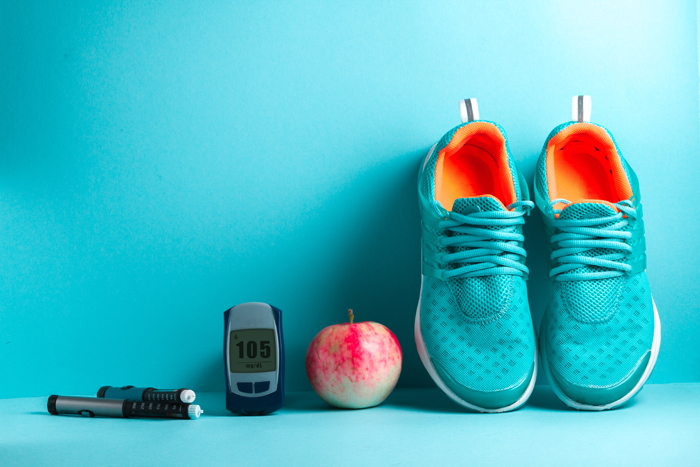Diabetes Mellitus Treatment in Chembur, Mumbai
Diabetes mellitus (diabetes) is a metabolic condition characterized by excessive blood sugar levels. For proper treatment and diabetes care, you can consult a general medicine doctor near you or visit a general medicine hospital near you.

What do you need to know about diabetes care?
Insulin transports sugar from the bloodstream to your cells, where it is stored or utilized for energy. Your body either doesn't generate enough insulin or can't use the insulin it does create efficiently if you have diabetes. Your doctor will develop and monitor your diabetes care plan to manage your condition.
What are the types of diabetes?
- Type1: An autoimmune illness, type 1 diabetes is a condition in which the body attacks itself: the immune system starts destroying and attacking insulin-producing cells in the pancreas. The reason for the attack is unknown.
- Type2: When your body develops insulin resistance, sugar builds up in your bloodstream, known as type 2 diabetes.
- Prediabetes: When your blood sugar level is alarming but not high enough to be diagnosed with type 2 diabetes, you have prediabetes.
- Gestational diabetes: High blood sugar during pregnancy is known as gestational diabetes. It happens due to hormonal changes and the placenta's production of insulin-blocking substances.
What are the symptoms that indicate you need diabetes care?
The most common diabetic symptoms:
- Weakness
- Dry mouth
- Polyuria (frequent urination)
- Polyphagia (frequent hunger feeling)
- Polydipsia (frequent thirsty feeling)
- Blurred vision
- Weight loss
- Cuts and wounds start taking a long time to heal
What causes diabetes?
Type 1 diabetes is assumed to be caused by a mix of genetic predisposition and environmental factors, while the specific causes remain unknown. In type 1 diabetes, heavy weight does not have a role to play.
Genetic and environmental variables may have a role in developing type 2 diabetes. Although being overweight is significantly connected to the development of type 2 diabetes, not everyone who has the disease is obese.
The placenta generates hormones to keep your pregnancy going. Insulin resistance increases in your cells as a result of these hormones. When this happens, too little glucose enters your cells while too much remains in your blood, causing gestational diabetes.
When do you need to see a doctor?
Contact your doctor if you detect any signs or symptoms of diabetes. A general medicine doctor near you can chalk out a proper diabetes care plan for you.
Following your diagnosis, you'll need to see a doctor regularly until your blood sugar levels return to normal.
You can request an appointment at Apollo Spectra Hospitals, Chembur, Mumbai.
Call 1860 500 2244 to book an appointment.
What are the risk factors?
- A family history of diabetes mellitus raises the risk of developing diabetes in offspring.
- Obesity increases the risk of type 2 diabetes.
- A sedentary lifestyle, inactivity and fried, unhealthy food increase the risk of diabetes.
- Women experiencing polycystic ovary syndrome (PCOS) are at high risk of developing diabetes.
- People experiencing high blood pressure, high cholesterol and high triglycerides levels are at increased risk of developing diabetes.
What are the complications?
- Cardiovascular diseases: coronary heart disease, stroke, high cholesterol, high blood pressure, atherosclerosis
- Nephropathy: causing damage to kidneys
- Neuropathy: damage to nerves starts with tingling and numbness of fingers and toes
- Retinopathy: causing harm to eyes
- Hearing loss
- Dental problems
- Dementia
- Skin infection
- Erectile dysfunction
- Foot damage
- Diabetic ketoacidosis: high level of ketones in the blood because of lack of insulin
- Hyperglycemia (high blood sugar)
- Hypoglycemia (low blood sugar due to the high dose of insulin)
- Diabetic coma: extreme hyperglycemia or hypoglycemia can lead to diabetic coma
How is diabetes treated?
Treatment and management of diabetes include medication protocol and insulin as per the diabetic plan by your doctor. Adopting a healthy lifestyle can help avoid some types of diabetes. Some of the diabetes management steps include:
- Consuming a diet rich in fiber
- Avoiding sugar and processed carbs
- Drinking plenty of water
- Working out for 30 minutes daily
- Eating in small portions
- Quitting smoking
Conclusion
Some types of diabetes can be avoided by making better lifestyle choices, increasing physical exercise and losing weight. If you're at risk, get your blood sugar checked and follow your doctor's recommendations for blood sugar management.
No. There is currently no cure for diabetes. However, your doctor can effectively manage and prevent it from worsening. You can keep diabetes under control by consuming a balanced diet and engaging in regular physical exercises to maintain your blood glucose levels.
Effective therapy to regulate blood glucose and reduce problems utilizing insulin replacement, a balanced and nutritional diet, and regular exercise are among the management planning for diabetic patients in India.
Metformin medication is a standard first-line therapy for type 2 diabetes. It works by lowering glucose synthesis in the liver and increasing insulin sensitivity in the body.
Symptoms
Our Top Specialities
NOTICE BOARD
CONTACT US
CONTACT US
 Book Appointment
Book Appointment


.svg)
.svg)
.svg)
.svg)








